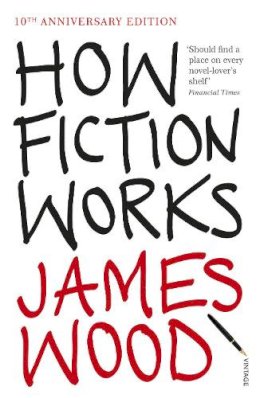
How Fiction Works
James Wood
Rediscover this deep, practical anatomy of the novel from 'the strongest ... literary critic we have' (New York Review of Books) in this new revised 10th anniversary edition.
What do we mean when we say we 'know' a fictional character?
What constitutes a 'telling' detail?
When is a metaphor successful?
Is realism realistic?
Why do most endings of novels disappoint?
In the tradition of E. M. Forster's Aspects of the Novel and Milan Kundera's The Art of the Novel, How Fiction Works is a study of the main elements of fiction, such as narrative, detail, characterization, dialogue, realism, and style. In his first full-length book of criticism, one of the most prominent critics of our time takes the machinery of story-telling apart to ask a series of fundamental questions.
Wood ranges widely, from Homer to Beatrix Potter, from the Bible to John Le Carré, and his book is both a study of the techniques of fiction-making and an alternative history of the novel. Playful and profound, it incisively sums up two decades of bold, often controversial, and now classic critical work, and will be enlightening to writers, readers, and anyone interested in what happens on the page.
'Should find a place on every novel-lover's shelf. It has the quality all useful works of criticism should have: refined taste, keen observation, and the ability to make the reader argue, passionately, with it' Financial Times
Product Details
About James Wood
Reviews for How Fiction Works
Scotland on Sunday
There aren't many book reviewers whose leaving one magazine to go to work for another would make the headlines. But then there aren't many book reviewers like James Wood
Sunday Telegraph
Luminous... full of top-notch observations from the coal-face
D.J. Taylor
Independent on Sunday
Enchanting... Witty, concise, and composed with a lovely lightness of touch
Economist
Exceptionally illuminating... brilliantly acute and enticingly widely read work. It should be compulsory reading for anyone in the reviewing trade and committed to memory before aspiring writers put pen to paper. For those who intend to pursue the underrated calling of reading fiction without wishing to add to its ranks, it will not only make reading more pleasurable, but articulate what you may have felt but never been able to express
Rosemary Goring
Herald
James Wood is Britain's lost literary critic. It's impossible to read this book and not want immediately to turn back to the authors he discusses...and read more of them, more closely, yourself. And very little literary criticism achieves that
Evening Standard
Intelligent, well-read and extremely confident
Guardian
Should find a place on every novel-lover's shelf. It has the quality all useful works of criticism should have: refined taste, keen observation, and the ability to make the reader argue, passionately, with it
John Sutherland
Financial Times
Fondly and delicately pieces back together what the deconstructors put asunder
Observer
Displaying a playful exuberance wonderfully at odds with the dry, jargon-strewn tradition of academic criticism, this deft, slender volume analyses how novelists pull rabbits out of hats
The Economist
